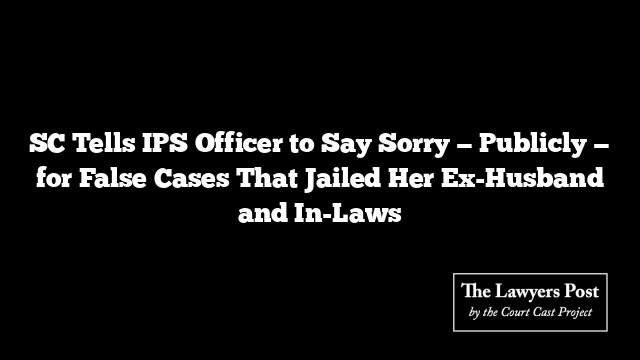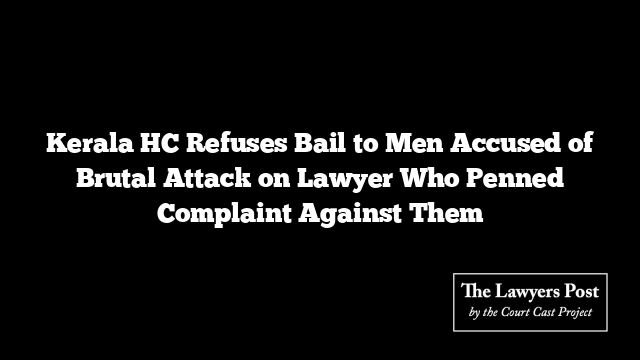In a judgment that carried the weight of both justice and symbolism, the Supreme Court has ordered an Indian Police Service (IPS) officer and her parents to publicly apologize for unleashing a barrage of legal attacks on her former husband and his family—attacks that saw two men unjustly imprisoned for months.
The apex court, led by Chief Justice BR Gavai and Justice Augustine George Masih, ruled that the officer and her parents must issue an unconditional apology in both a national English and Hindi newspaper, and post it across all major social media platforms—Facebook, Instagram, YouTube, and beyond—within three days.
Their actions, the court found, had inflicted “physical and mental trauma” on the husband and his father, who spent 109 and 103 days respectively behind bars due to cases filed by the officer. No financial compensation or legal reparation could undo that damage, the court remarked—only a public act of accountability might come close.
And yet, while this apology is mandated, the court emphasized it must not be viewed as an admission of legal guilt. The words will be public, yes—but not prosecutorial.
The couple married in 2015, had a daughter, and separated in 2018 after a storm of personal and familial discord. What followed was a legal battlefield: cross-complaints, criminal and civil litigation, and years of simmering hostility.
Now, the Supreme Court has brought that war to an official end. All cases between the two sides—criminal and civil—have been quashed. The court also invoked its powers under Article 142 of the Constitution to dissolve the marriage entirely.
The woman waived all rights to alimony and maintenance. She also relinquished any claim over property owned by the husband or his family. Custody of the child was granted to the mother, with the father and his family receiving supervised visitation rights.
With that, the curtain falls—not just on a failed marriage, but on a courtroom saga that turned into a cautionary tale. The final act? A printed apology, loud and clear.





